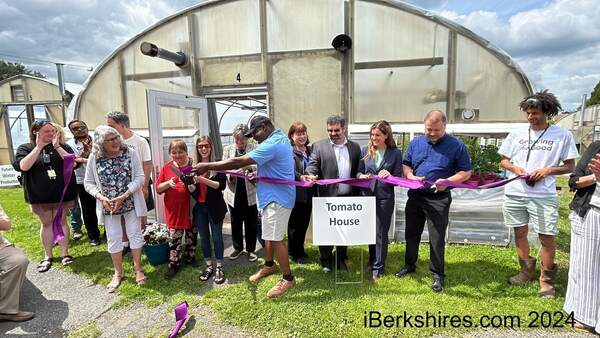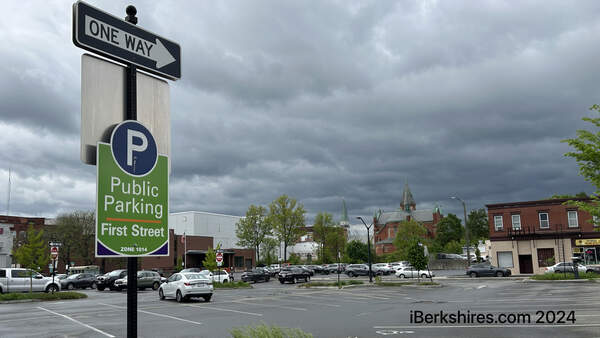Governor Releases Plan to Protect and Enhance Access to Farmland
DRACUT, Mass. — The Healey-Driscoll Administration released the Massachusetts Farmland Action Plan today, a long-range strategic initiative to address Massachusetts' farmland needs.
The plan sets goals and priorities around increasing farmland conservation and protection, addressing farmland access, and preserving and expanding the economic and environmental viability of farms across the state.
"Today, nearly 500,000 acres of precious farmland are stewarded by our farmers. But with rising costs and increased extreme weather, our farmers need our help to plan for the future," said Energy and Environmental Affairs Secretary Rebecca Tepper. "The Farmland Action Plan will protect and expand our existing acreage by making more public land available for lease to farmers and enacting zoning measures that support farmland."
The plan was developed through a collaboration between MDAR, the UMass Donahue Institute, the Massachusetts Food System Collaborative, and the American Farmland Trust, and engaged hundreds of farmers
and stakeholders during its development. It complements the state's Clean Energy and Climate Plan, Healthy Soils Action Plan, Resilient Lands Initiative, and other related efforts as the state makes investments and policies. These plans also serve as a resource for private sector stakeholders as they contribute to the state's environmental and economic goals.
The plan proposes steps to:
-
Significantly expand protection of the Commonwealth's remaining farmland, make more public land available for farming, and increase the amount of farmland by returning marginal and abandoned land to production;
-
Increase land protection programs, technical assistance grants, and farmland support programs;
-
Ensure that equity criteria are applied in all land protection and technical assistance grants and
-
programs;
-
Pursue a combination of state and local policies, regulations, and incentives focused on realizing no net loss of farmland to protect farmland and mitigate unavoidable loss;
-
Enact zoning measures that support farmland;
-
Expand and strengthen equity and diversity criteria in all land access programs and investments;
-
Increase technical assistance to farmers around crop and livestock-specific climate change adaptation
-
strategies;
-
Incentivize farmers who use management practices that enhance natural resources and support climate goals; and,
-
Build UMass Extension's capacity to meet the needs of farmers.
Massachusetts' more than 7,000 farms steward nearly 500,000 acres of farmland, about 10 percent of the state's land, and are an economic engine, generating $10 billion in economic activity annually. Available
farmland is core to the success of farms, and farms are essential to helping the state meet goals related to food security, climate change, and economic development.
Only 15 percent of existing farmland is protected from conversion to other uses. Between 1997 and 2017, the state lost nearly 60,000 acres of farmland. The Plan makes recommendations for protecting more farmland from further loss, such as increasing support for land protection programs, technical assistance grants, and farmland support programs, and pursuing policies and incentives focused on realizing no net loss of farmland mitigating of unavoidable loss.
Programs and resources that help farmers access the farmland they need are proposed in the plan to counterbalance these costs. Plan goals and recommendations also highlight the need to enhance equity
through all farmland efforts to ensure that historically underserved farmers and aspiring farmers have access to the resources they need to thrive in the industry.
"MDAR, the MA Food System Collaborative and everyone involved in the plan, especially the hundreds of people who provided input, should be commended on the plan's completion and comprehensiveness," said American Farmland Trust New England Regional Director Jim Habana Hafner. "The stakeholder process collected broad input on a range of interlocking issues - and in an ambitious time frame. The result reflects new insights, more voices, and connects more dots than ever before. We're confident that the Farmland Action Plan's true value as a guide and rallying point will be borne out, but only through the ever-widening participation, concrete action and periodic updates that it should inspire. American Farmland Trust stands ready to do our part to convert its core recommendations into action."
Massachusetts has been a national leader in farmland protection for decades. The Agricultural Preservation Restriction (APR) program was the first in the nation and has permanently protected more than 75,000 acres of farmland. Many other programs and policies support farms and farmland, and the plan offered an opportunity to review those successes and identify ways to ensure that they adapt to the evolving needs of farmers.
"Farm viability is not just a goal; it's the essence of a thriving agricultural ecosystem," said Massachusetts Farm Bureau Federation President Warren Shaw. "The Massachusetts Farmland Action Plan outlines the need for an enhanced business environment, increased resources, and recognizes the value of paying farmers for their invaluable services. It's a commitment to fostering a landscape where farms not only survive but flourish."
Following the plan's release, MDAR will coordinate ongoing outreach and engagement with the network of stakeholders who will be involved in implementation of its goals. The Department is in the process of hiring a Farmland Action Plan Coordinator to oversee this process.
Tags: farming,















